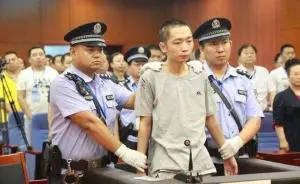South Korea's presidential spokesman said Monday that it has no reason to reject summit talks with Japan if the neighboring country shows sincere attitude toward historical issues, opening door for such talks possibly at the Nuclear Security Summit slated for later this month.
Asked whether the summit between Seoul and Tokyo will be possible at the Nuclear Security Summit, presidential spokesman Min Kyung-wook told reporters"There is no reason for us to refuse to hold dialogue if Japan shows sincere attitude and creates conditions for constructive dialogue."
Min, however, noted that nothing has been decided yet on whether to hold the summit by taking the opportunity of the Nuclear Security Summit set to be held in the Hague, the Netherlands between March 24 and 25.
Chances for the summit, which South Korean President Park Geun- hye has refused to hold due to the Japanese leadership's wrong perception of history, were getting high after Japanese Prime Minister Shinzo Abe said he would inherit past apologies for sex slavery and wartime atrocities.
Abe said last Friday that he and his cabinet will not revise Japan's past apology for enslaving women, mostly from the two Koreas, in military brothels during the World War II.
It marked the first time that the right-leaning leader clarifies his attitude toward the 1993 statement by then Chief Cabinet Secretary Yohei Kono, who acknowledged its imperialistic government was involved in the recruitment of more than 200,000 young women and forced them to serve in brothels.
Abe also said he follows Japan's apology issued in 1995 by then Prime Minister Tomiichi Murayama to countries that suffered from Japan's colonial rule and wartime brutal aggression.
President Park gave her first positive appraisal, since she took office last February, to Abe's remarks, saying that it was fortunate for the Japanese leader to say he will inherit Murayama and Kono statements though belatedly.
Ties between Seoul and Tokyo have been strained since Abe returned to power in December 2012. Abe infuriated Asian neighbors by visiting the notorious Yasukuni Shrine last December, while raising tensions by laying territorial claims to the rocky outcroppings, called Dokdo in South Korea and Takeshima in Japan, which lie halfway between the two nations.
The shrine, which honors 14 convicted class-A war criminals during World War II, has been viewed as a symbol of Japan's imperialism in the 20th century.
The presidential spokesman said the South Korean government was thinking highly of the summit where the two heads of state can draw a productive conclusion, rather than the dialogue for the sake of dialogue.
To create conditions for the productive dialogue, Japan should take sincere steps toward the historical issues, the spokesman said without commenting on which sincere steps would be required.
President Park said last Saturday that she hoped Abe's remarks can reduce sufferings of"comfort women"victims, hinting at Seoul' s demand for the Abe cabinet's official apology and compensations for the South Korean victims.
The comfort woman is a euphemism for young women coerced into sex slavery for the Japanese military brothels during the Second World War.
Japan was reportedly seeking to arrange a trilateral summit with South Korea and the United States at the Hague nuclear summit as the U.S. expressed concerns over Abe's attitude toward history that dented ties with Seoul and led to uncertainties about a three- way security alliance between the three allies.
Skepticism remained over the bilateral or trilateral summit between Seoul and Tokyo at the nuclear summit due to lack of time to arrange agendas during the talks. Only one week is left to kick off the nuclear summit.
Disparities remained over various issues, including how to atone for comfort women and how to describe wartime histories in textbooks as well as the territorial disputes surrounding the Dokdo islets.
 简体中文
简体中文

